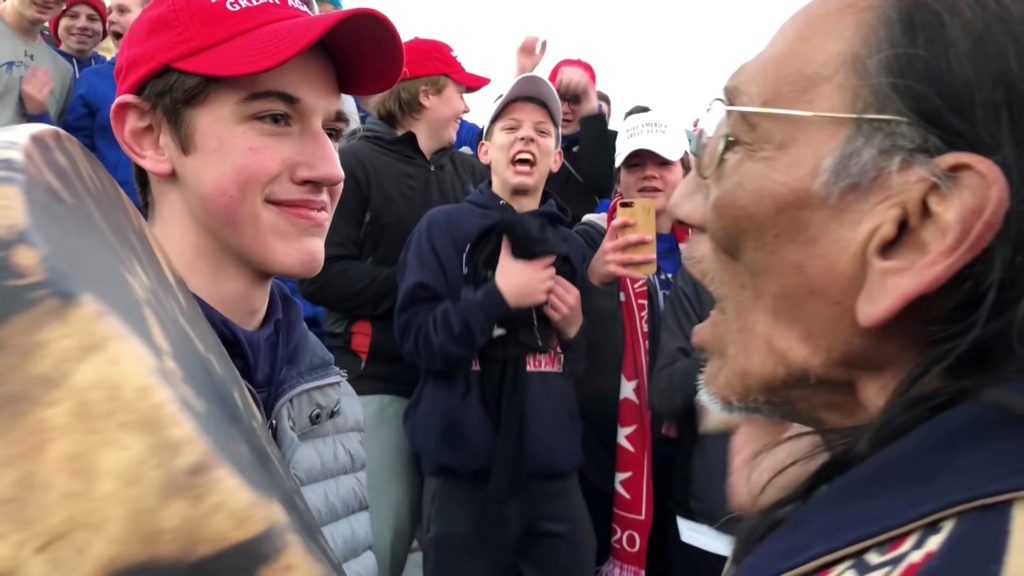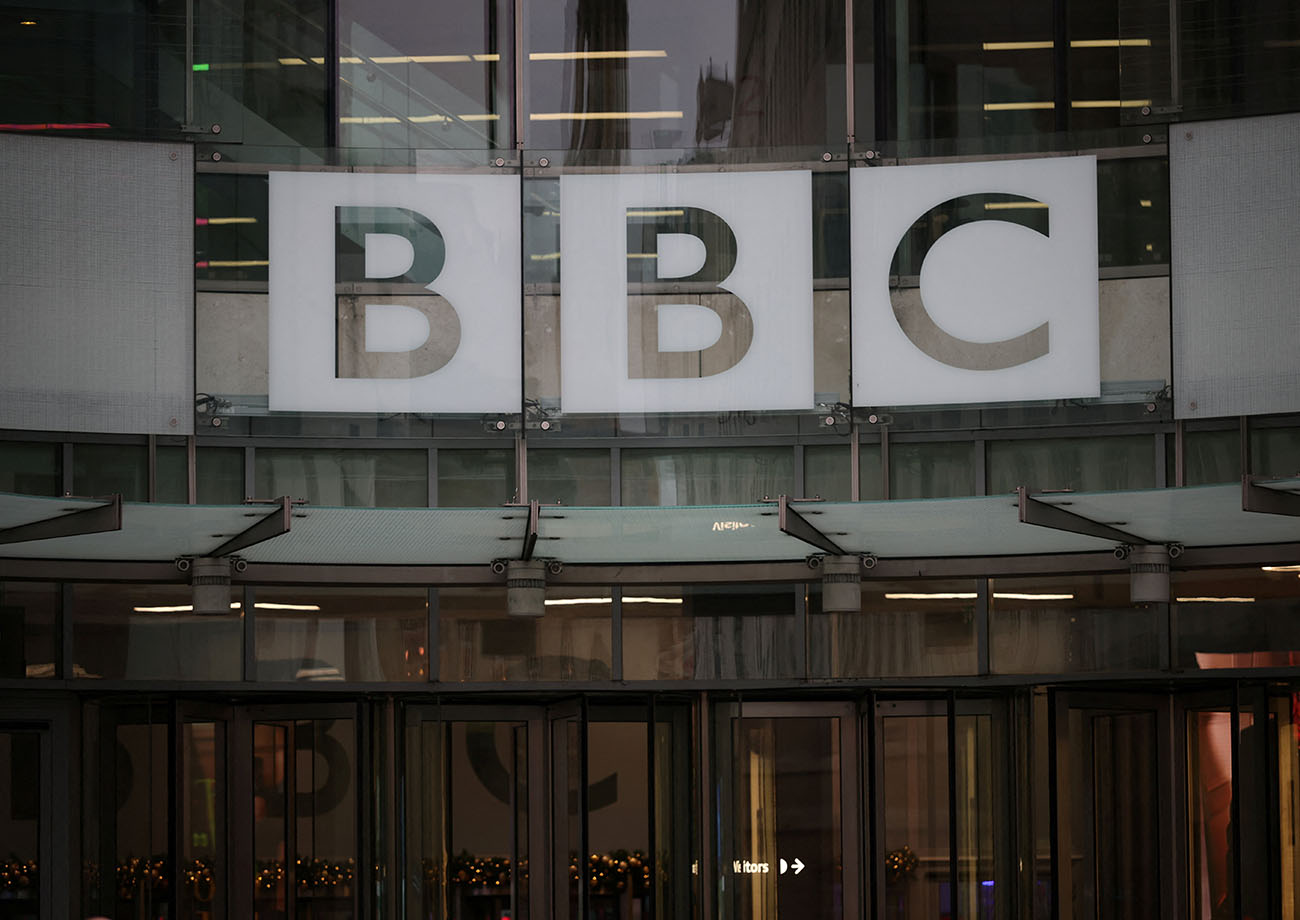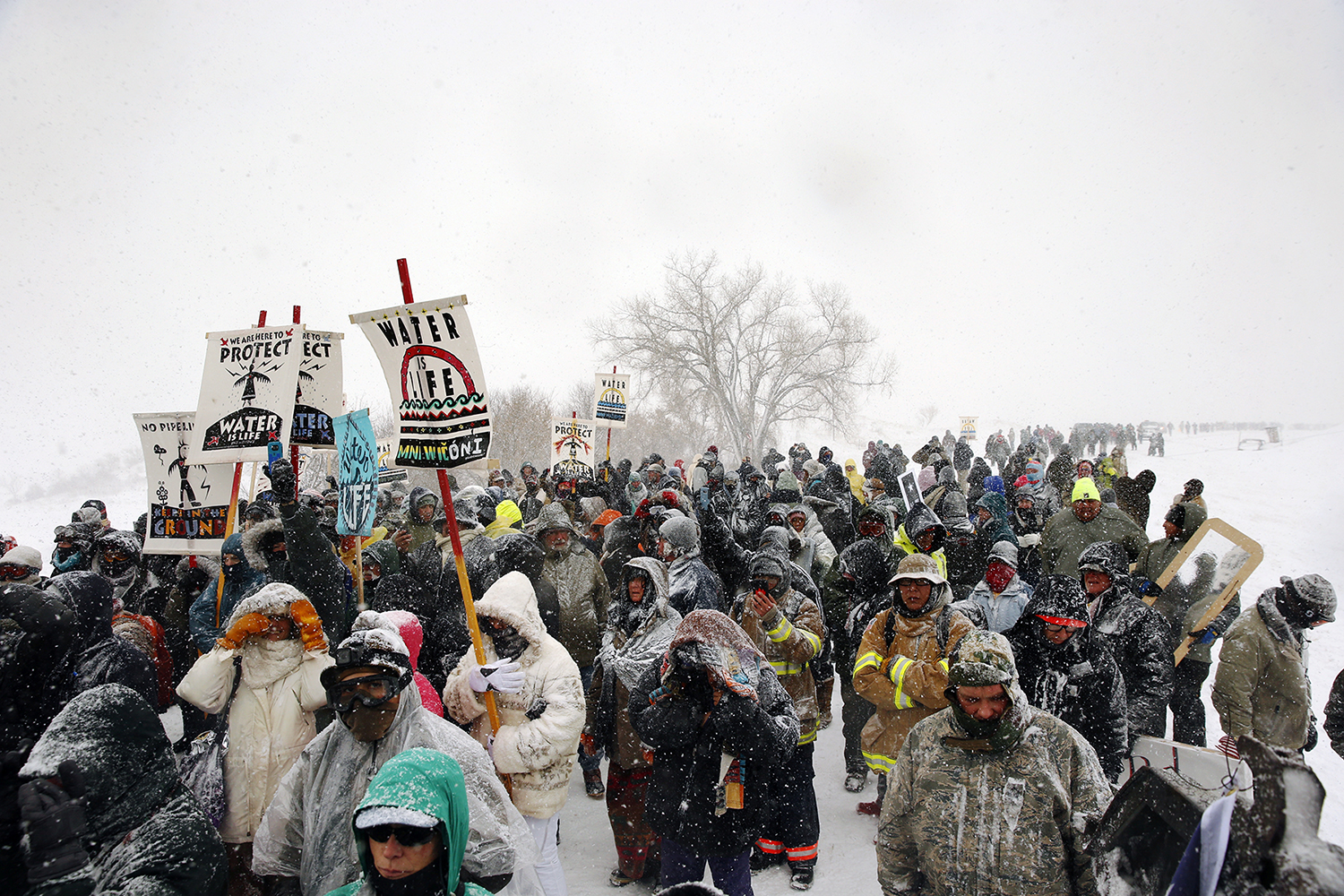News & Updates
Federal Judge Dismisses Covington Teens’ Suit Against Media Organizations
The United States District Court for the Eastern District of Kentucky dismissed defamation and harassment claims brought by 12 students from Covington Catholic High School (CCH) against CNN, NBC, and The Washington Post.
The lawsuit stems from the news organizations’ coverage of an encounter between then-CCH student, Nicholas Sandmann, and a Native American protester that went viral. Early reporting by CNN and other media outlets said that Sandmann had purposefully “blocked” the activist’s way when he tried to leave the scene, an assertion that Sandmann denies.
In their lawsuit, the 12 students claimed that the organization’s coverage of the encounter defamed the entire group of students, not just Sandmann.
Judge William Bertelsman dismissed the claims after finding that the media organizations did not publicly name any of the 12 students, unlike Sandmann. The rest of the statements regarding the encounter, such as Phillips stating that he felt “threatened” by the group of boys, and that he felt “hatred” coming from them, were not actionable because they were Phillip’s opinions.
“[U]nlike Sandmann’s claims based on statements Phillips made explicitly about Sandmann blocking him, Plaintiffs were among a larger group of students on the Lincoln Memorial steps that were never named,” Bertelsman wrote in a ruling filed on December 23rd.
July 27, 2020: Washington Post and Kentucky Teen Reach Undisclosed Settlement
The Washington Post announced on July 24th that it had reached a settlement with the parents of a Kentucky teenager who sued the newspaper last year over its depiction of an encounter between their son and a Native American activist.
“We are pleased that we have been able to reach a mutually agreeable resolution of the remaining claims in this lawsuit,” said Kristine Coratti Kelly, a spokeswoman for The Post. Kelly did not disclose the terms of the agreement.
Teenager Nicholas Sandmann became the subject of national attention after a filmed encounter between him and a Native American activist went viral online. The short video depicted a smiling Sandmann in a “Make American Great Again” hat, standing face-to-face with indigenous activist Nathan Philips.
The Sandmanns have also sued a number of news organizations and public figures for defamation. Earlier this year, CNN reached a settlement with the parents, but the lawsuit against The New York Times and five others are ongoing.
The Washington Post The New York Times
January 8, 2020: CNN Settles Defamation Suit With Family of Covington Catholic Teen
CNN has settled a defamation lawsuit brought by the family of a Covington, Kentucky teenager in the U.S. District Court Eastern District of Kentucky Northern Division at Covington. Filed in March 2019, the lawsuit originally requested $275 million in damages.
CNN confirmed that a settlement had been reached, but did not offer more details.
Nicholas Sandmann became the subject of national attention after a filmed encounter between him and a Native American activist went viral online. The short video depicted a smiling Sandmann in a “Make American Great Again” hat, standing face-to-face with indigenous activist Nathan Philips.
Early reporting by CNN and other media outlets said that Sandmann had purposely blocked the activist’s way, and that Sandmann and his classmates had ridiculed and intimidated the Native American. Later, a second video emerged that painted a more complicated picture of the events. It showed that the Covington Catholic students had been responding to taunts by a third group, who call themselves Black Hebrew Israelites.
The resulting controversy highlighted a tendency among people on social media to make quick judgments without the full context of a story.
In a TV interview with Today, Sandmann, who was 16 years-old at the time of the encounter, said that he was “not disrespectful to Mr. Philips” and that he had gotten many hateful messages as a result of the video.
In the complaint against CNN, Sandmann’s lawyers claim that the company “brought down the full force of its corporate power, influence, and wealth on Sandmann by falsely attacking, vilifying, and bullying him despite the fact that he was a minor child.” The lawyers cite two broadcast comments (1,2) and nine articles as evidence.
“CNN falsely asserted that Nicholas and his CovCath classmates were in a ‘racis[t]’ ‘mob mentality’ and ‘looked like they were going to lynch’ the Black Hebrew Israelites who were merely ‘preaching about the Bible nearby’ ‘because they didn’t like the color of their skin’ and ‘their religious views,’ and that Nicholas and his classmates then ‘surrounded’ one of the Native Americans, 64-year old Nathan Phillips, creating ‘a really dangerous situation’ during which Nicholas ‘blocked [Philips’] escape’ when Phillips tried ‘to leave’ the mob, causing Phillips to ‘fear for his safety and the safety of those with him,’ while Nicholas and his classmates ‘harassed and taunted’ him,” the complaint argues.
The complaint also alleges that CNN specifically targeted Nicholas because he was a supporter of President Donald Trump, and the president has “publicly and repeatedly branded CNN as the poster child of ‘fake news’.”
“CNN has maintained a well-known and easily documented biased agenda against President Trump and established a history of impugning individuals perceived to be supporters of the president,” the complaint said.
As a private citizen, the standard for proving defamation is lower than it would have been had Sandmann been a public official or figure. The level of fault requirement in a defamation suit involving private individuals varies by state, though all states require proving at least negligence or carelessness.
Sandmann’s family has also filed defamation lawsuits against The Washington Post, NBC News, and twelve individuals for allegedly defamatory statements. In October 2019, a federal judge partially reinstated the suit against The Washington Post after originally dismissing the case on First Amendment grounds.
Button Description The Washington Post The Ledger EnquirerOctober 29, 2019: Federal Judge Reinstates Sandmann Suit
A federal judge has partially reinstated a $250 million dollar defamation suit against The Washington Post after having originally dismissed the case on First Amendment grounds.
The original complaint, filed by the family of Nicholas Sandmann whose encounter with a Native American activist went viral last year, argued that the Post made 33 defamatory statements in its reporting of the event. In July, Judge William O. Bertelsman ruled that none of the statements were actionable because they were either not about Sandman, or were protected opinions.
Bertelsman has since changed his mind about 3 of the 33 allegedly defamatory statements. In a new order filed on October 28, the judge writes:
“The Court will adhere to its previous rulings as they pertain to these statements except Statement 10,11, and 33, to the extent that these three statements state that plaintiff ‘blocked’ Nathan Phillips [the Native American activist] and ‘would not allow him to retreat’.”
As media reporter Paul Fahri pointed out in the Post, the new order marks a significant shift. Bertlesman had originally ruled that those statements were opinions.
“The court accepts Sandmann’s statement that, when he was standing motionless in the confrontation with Phillips, his intent was to calm the situation and not impede or block anyone,” the judge wrote in July.
“However, Phillips did not see it that way. He concluded that he was being ‘blocked’ and not allowed to ‘retreat.’ He passed these conclusions on to The Post. They may have been erroneous, but . . . they are opinion protected by the First Amendment. And The Post is not liable for publishing these opinions.”
The judge’s order doesn’t explain what caused him to change his mind, but the shift came after he heard oral arguments on a motion to propose an amended complaint on October 16.
“Suffice to say that the Court has given this matter careful review and concludes that ‘justice requires’ that discovery be had regarding these statements and their context,” Bertlesman wrote in his latest order. “The Court will then consider them anew on summary judgement.”
The Washington Post Judge’s Order
Kentucky Teenagers File Libel Suit Against Elizabeth Warren, New York Times Journalist, and Ten Others
August 2, 2019
The families of eight teenagers from Covington, Kentucky have filed a libel lawsuit in Kentucky’s Kenton County Circuit Court against twelve individuals for using “their large social media platforms” to circulate false statements about them. Among those listed as defendants include presidential candidate Senator Elizabeth Warren, New York Times journalist Maggie Haberman, and social activist Shaun King.
The suit, which lists the plaintiffs as “John Does 1 through 8”, centers around video from a January 18, 2019 encounter at the Lincoln Memorial between the students and a group of Native American activists.
A video of the incident, in which it appeared that one of the teens was taunting a Native American activist, went viral. This prompted a number of politicians, journalists, and other prominent figures to express outrage against the students in support of the Indigenous leader.
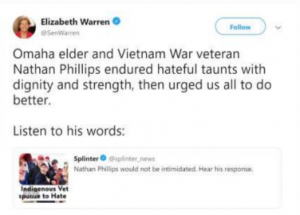
Screenshot of Elizabeth Warren’s Twitter post taken from complaint.
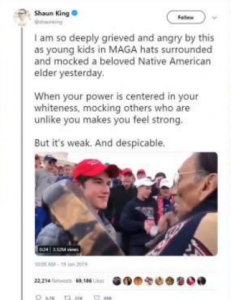
Screenshot of Shaun King’s Twitter post taken from complaint.
“Several of our Senators, most-famous celebrities, and widely read journalists, collectively used their large social media platforms, perceived higher credibility and public followings to lie and libel minors they never met, based on an event they never witnessed,” the complaint says. “The defendants were each individually offered the opportunity to correct, delete, and/or apologize for their false statements, but each refused, continuing to circulate the false statements about these children to this very day on their social media platforms they personally control.”
The decision to file suit comes days after a federal judge in Kentucky dismissed a $250 million libel case against The Washington Post brought by the family of one of the high school students at the center of the controversy. In his decision, U.S. District Judge William Bertelsman ruled that the statements the newspaper made were not actionable because they were either not about Sandmann or the remarks were opinions, not facts. According to First Amendment law, opinions cannot serve the basis of a defamatory claim because they cannot be proven true or false.
Nonetheless, Attorney Robert Barnes who filed the suit alongside lawyer Kevin Murphy, thinks this case has a better chance of being litigated because the plaintiffs are challenging individuals rather than an institution.
“Kentucky law makes it more difficult to sue institutions than individuals in the context of libel law. Additionally, the major media institutions almost all issued corrections per my request, as defined under Kentucky law,” Barnes said in an interview with Law & Crime. “Finally, we are only suing the most egregious high-profile individuals who inflicted the most harm and refused to issue corrections.”
The plaintiffs are requesting a trial by jury, damages of up to $50,000 for each of the defendants, and attorney fees.
July 26, 2019: Federal Judge Dismisses Sandmann Libel Suit
A federal judge in Kentucky dismissed a libel suit against The Washington Post brought by the family of a Kentucky teen who was at the center of an encounter at the Lincoln Memorial in January that went viral.
The parents of Nicholas Sandman sued the newspaper on February 20, claiming that it had falsely reported on their son’s involvement in a confrontation with a Native American activist.
The suit claimed that the Post “ignored basic journalistic standards” to pursue its “biased agenda against President Trump,” and that Sandmann was targeted by the paper because he was wearing a “Make America Great Again” cap.
The complaint cited 7 articles and three tweets on the Post’s Twitter account that allegedly contained 33 false and defamatory statements.
In his decision, U. S. District Judge William Bertelsman said that nine of the statements did not mention Sandmann by name, lacked an identifiable description of him, and did not contain a picture of the teen. “These statements are not actionable because they are not about Sandman,” he wrote.
The remaining statements were not defamatory, the judge ruled, because they were opinions and not facts.
“Few principles of law are as well-established as the rule that statements of opinion are not actionable in libel actions. This rule is based on the right to freedom of speech in the First Amendment to the United States Constitution. The statements that Sandmann challenges constitute protected opinions that may not form the basis for a defamation claim,” Bertelsman wrote.
Sandmann’s parents said they planned to appeal.
April 9, 2019: The Post Defends Its Reporting In An Effort To Dismiss The Libel Lawsuit Brought By Sandmann’s Family
The Washington Post asked a federal court to dismiss the $250 million defamation lawsuit filed by the parents of the Nick Sandmann who allege that the paper defamed him in its coverage of the Kentucky teen’s viral encounter at the Lincoln Memorial back in January.
The motion to dismiss, filed in U.S. District Court in Covington, Kentucky, refutes Sandmann’s claims that the paper defamed him:
“In short, the articles at issue may not have been flattering of the Covington Catholic students, but they do not give rise to a defamation claim by Sandmann. Indeed, the Post’s overall coverage—including the articles that the Complaint fails to mention—was not only accurate; it was ultimately favorable to him.”
The Post‘s motion defends the paper’s ongoing reporting of the then-developing story. “It was neither false nor defamatory, however, for the Post to report the comments of eyewitnesses, including the only participants who were speaking publicly about the matter on the day that videos of the event went viral on the internet,” the complaint says. “Newspapers are often unable to publish a complete account of events when they first come to light.”
The Post also took issue with “inflammatory rhetoric” of the complaint and the “nonstop public promotion of the suit” to combat the paper’s alleged political bias against President Trump. “Politics has nothing to do with this case, and law warrants its dismissal,” the Post says.
Washington Post The Hollywood Reporter Motion to Dismiss
February 20, 2019: The Parents of the Covington Teen In The Lincoln Memorial Encounter Sue Washington Post For $250M
The family of the Kentucky teen at the center of an encounter with a Native American activist last month is seeking $250 million in damages from the Washington Post for their coverage of the conflict.
According to allegations outlined in a lawsuit filed by Sandmann’s family in the U.S. District Court Eastern District of Kentucky Northern Division at Covington, the Post published “False and Defamatory Accusations negligently and with actual knowledge of falsity or a reckless disregard for the truth,” in seven articles published about the incident in print and online, as well as in tweets used to promote the articles.
“In a span of three (3) days in January of this year commencing on January 19, the Post engaged in a modern-day form of McCarthyism by competing with CNN and NBC, among others, to claim leadership of a mainstream and social media mob of bullies which attacked, vilified, and threatened Nicholas Sandmann, an innocent secondary school child,” the complaint reads. “The Post ignored basic journalist standards because it wanted to advance its well-known and easily documented, biased agenda against President Donald J. Trump by impugning individuals perceived to be supporters of the President,” the suit said, adding that the paper targeted Sandmann because he was a “white, Catholic student wearing a ‘Make America Great Again’ souvenir cap.”
News and video footage from the event sparked a nation-wide controversy centered around Sandmann and his classmate’s behavior on January 18 when they crossed paths with 64-year-old Nathan Phillips at the Lincoln Memorial. Phillips had participated in the Indigenous Peoples March at the National Mall, and the Covington Catholic High School students had attended the March for Life anti-abortion rally on a school trip. The students were waiting for their buses to return to Kentucky when they encountered Phillips.
The suit alleges that the Post relied on video posted on a fake Twitter account on the night of the encounter to inform its reporting. In the video, a smiling Sandmann is wearing a red “MAGA” hat surrounded by his classmates while standing face-to-face with Phillips, who is beating a drum and chanting. But according to the suit, there was more to the story than the video showed, and that it was Phillips who “instigated a confrontation.” A longer video of the incident was later released which the suit asserts more accurately portrayed what happened at the National Mall.
“The Post rushed to lead the mainstream media to assassinate Nicholas’ character and bully him,” the suit says of the Post’s reporting, which fanned “the flames of the social media mob into a mainstream media frenzy of false attacks and threats against Nicholas.”
An investigative firm retained by the Diocese of Covington released a report last week that concluded that the students did not instigate the incident and or make “offensive or racist statements” towards Phillips.
The amount of damages that the plaintiffs are seeking is the same amount that Jeff Bezos paid when his company, Nash Holdings LLC, purchased the Post in 2013.
The Post reports that its spokeswoman said in response to the suit, “We are reviewing a copy of the lawsuit, and we plan to mount a vigorous defense.”
Sandmann’s attorneys L. Lin Wood and Todd McMurtry said in a statement that they fully expect more civil lawsuits to be filed and “aggressively pursued.”
The Washington Post Politico Reuters
Documents & Resources
Sandmann vs. The Washington Post Complaint Washington Post Motion to Dismiss
Tags
